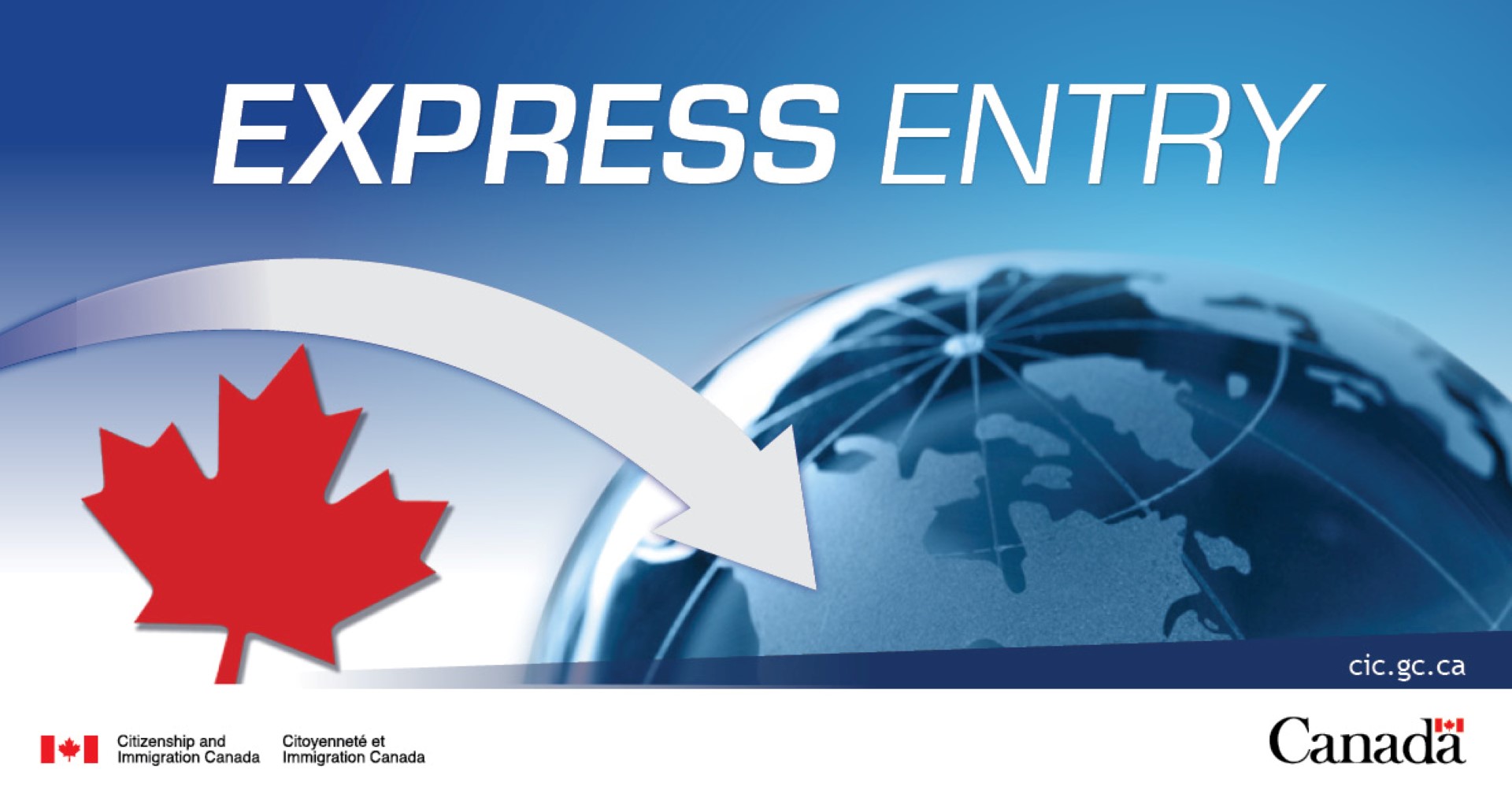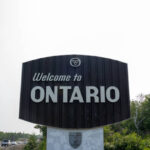
Are you thinking of how to become a permanent resident in Canada (as a skilled immigrant)? This post is for you.
The information here covers:
- ✅What is Express Entry (EE) in Canada?
- ✅How to become a Permanent Resident by Express Entry.
- ✅Available Express Entry sub-programs.
- ✅How to boost your Express Entry CRS Scores.
- ✅The Fees/Costs associated with the Express Entry application.
What is Express Entry?
In 2015, Canada started the Express Entry system to process permanent residence applications for SKILLED workers who want to settle in Canada permanently. Every year, thousands of candidates are invited through any of the three(3) sub-categories of the Express Entry System to become permanent residents in Canada. In addition, it will take you about 3 years of living in Canada as a permanent resident to also become eligible for Canadian citizenship.
While there are over 100 immigration programs in Canada, the Express Entry is the most popular for permanent residence applications. It is a system for foreign nationals to immigrate permanently to Canada under 3 sub-programs, and it is a point-based immigration system that is based on certain skills/economic requirements.
The Three (3) Sub-categories in Express Entry
The 3 Express Entry sub-categories are:
✅Federal Skilled Worker. More information here
✅Canadian Experience Class. More information here
✅Federal Skilled Trades. More information here
Express Entry is a Federal Government of Canada program, meaning it is different from Provincial or other Immigration Programs.
If you click the links above, you will notice the differences in each of the sub-categories.
Basically:
- ✅FSW: For skilled workers with FOREIGN work experience.
- ✅CEC: For skilled workers with CANADIAN work experience.
- ✅FST: For skilled workers qualified in selected skilled TRADES.
I can hear someone asking how will I know which one to apply for?
As stated, if you do not have CANADIAN work experience of at least one year, or in the selected skilled TRADES, then your option is Federal Skilled Worker (FSW). FSW is what many people OUTSIDE Canada apply for. Let’s focus on that.
The Six Selection Factors
To become eligible for the Federal Skilled Worker program, six selection factors are used:
- ✅Language skills (in English and/or French)
- ✅Education level
- ✅Work Experience
- ✅Age
- ✅Arranged Employment in Canada
- ✅Adaptability points
If you score 67/100 in the above factors, you may be eligible to apply. More information on this and how to calculate your eligibility is available here.
Your eligibility above is the first thing to determine, before you even set up your Express Entry profile.
Now that you are eligible, what is next?
1) The Required Language Test
To know your language skills/points and to be eligible for permanent residence in Canada as a skilled worker, you must write at least one of the language tests, IELTS or CELPIP General Training (for English) or TEF or TCF ( for French). Details are available here.
Some people who have the ability will write their language tests in both English and French, because having both language abilities will increase your points significantly.
So, find a language examination available in your country. CELPIP, for instance, can only be written in Canada, the USA, China, India, the Philippines, the UAE, the UK, and recently, Nigeria.
Also, aim for as high as possible in your language test. After you receive your language test score, the language test score is converted to Canadian Language Benchmark (CLB). I, therefore, recommend having CLB 9 and above. The sample of language tests to CLB conversion is available here.
If you need free resources to prepare for your language test, you will find the compiled IELTS resources here.
2) The Required Education Credential Assessment (ECA)
Also, if your Degree is NOT from Canada, you must do an Education Credential Assessment (ECA) to evaluate it with any organization listed here. This will allow the organization to issue you a report and state what your degree is equivalent to in Canada.
Without your language test result(s) and the completed Education Credential Assessment (ECA), you CANNOT begin your Express Entry application or set up your Express Entry profile. So yes, it is compulsory to do both.
It also doesn’t matter which one you do first, but your ECA may take longer to complete. You need to get your transcripts and certificates for this, and the ECA is valid for 5 years.
The language tests are valid for 2 years. Because of this, I recommend that you start your ECA first and use the waiting time to prepare for your language test.
Express Entry is also point-based, as I earlier said, the more you have, the better (except for age). Once you are over 29 years old, you will begin to lose some points for every additional year from 30 years old.
2b) Additional Information on Education Credential Assessment (ECA)
For the ECA, you may evaluate your highest degree alone (i.e, if you have a Masters or PhD). If you already have one of the two (a Masters or PhD), you are only awarded points for the highest Degree.
However, if you only have a BSc, you can add recognized Professional Certificate or Post-Graduate Diploma. When you evaluate your BSc with this, both will give you more points. It is regarded as“Two or more certificates, diplomas, or degrees.” One of these two must also be for a program of three or more years.
You will see a list of some of the Professional Certificates and Diplomas to consider here.
This is also applicable to polytechnic graduates who have ND and HND. When you evaluate your ND and HND together, it is regarded as “Two or more certificates, diplomas, or degrees. Which is also more points than a BSc alone.
If done together, you will NOT pay extra fees for evaluating more than one degree by any of the organizations. Educational Credential Assessment fees are flat rates. Extra costs could be the cost of sending your documents (i.e., transcripts) to the designated organizations.
2c) First Degree Holders with Professional Degrees.
Additional information is for those who have Degrees regarded as “professional degrees needed to practice in a licensed profession.”
If you have any of these seven (7) professional degrees and complete your Education Credential Assessment (ECA) at a designated organization for your profession, you will receive an evaluation that gives you a point equal to having a Master’s Degree. This is more points than a BSc point, which is an added advantage for you.
The Degrees recognized as professional degrees are:
- ✅Medicine (use MCC for your evaluation)
- ✅Veterinary Medicine
- ✅Dentistry
- ✅Optometry
- ✅Law (use IQAS or CES for your evaluation)
- ✅Chiropractic Medicine
- ✅Pharmacy (use PEBC for your evaluation)
If you have a degree in an area that is not one of those listed above, then it will not be considered a “professional degree needed to practice in a licensed profession”.
3) The requirements for your work experience and National Occupation Classification (NOC)
Your work experience must also be at least one year full-time (or equivalent in part-time).
According to the Immigration Refugees and Citizenship Canada (IRCC). You must have:
- at least 1 year of continuous work or 1,560 hours total (30 hours per week) — you can meet this in a few different ways:
- full-time at 1 job: 30 hours/week for 12 months = 1 year full-time (1,560 hours)
- equal amount in part-time work: for example 15 hours/week for 24 months = 1 year full time (1,560 hours)
- You can work as many part-time jobs as you need to meet this requirement
- full-time at more than 1 job: 30 hours/week for 12 months at more than 1 job = 1 year full time (1,560 hours).
Your work experience must also be a TEER 0, 1, 2, or 3 of the Canadian National Occupation Classification (NOC). If yours isn’t, it means it’s not a “skilled” job that is eligible for Express Entry in Canada.
You can find your NOC Number and skill type here.
Once you have one year of full-time work experience in your primary NOC, your other years of work experience can be in other NOCs, or be in the same NOC too. For instance, Ade has one year of work experience as a Banker, and has also worked for 2 years as a Teacher, and 1 year as a Management Consultant. In total, Ade has 4 years of work experience, he will only decide which one to choose as his primary NOC, and add others as well.
As long as all of Ade’s work experience is in NOC TEER 0, 1, 2, or 3, Ade can claim points for all his work experience, even though they have different NOCs.
The good thing about the Express Entry program is that your education and work experience do not need to be in the same field. So, Ade’s degree could be in Microbiology, and he will still be able to claim points for his work experience as a Banker, Teacher, and Management Consultant.
When submitting a final permanent residence application, Ade will present documents from all his employers to show that he truly worked in those areas. (examples of documents required are employer reference letters, payslips, ID Cards, pension statements, etc, as many as possible and available)
4) Setting Up the Express Entry Profile (Entering the Express Entry Pool).
With your ECA, language result(s), and other information, you can calculate your Comprehensive Ranking System (CRS) Score here.
Once this is done, set up your Express Entry profile here.
If your CRS score in the profile isn’t what was calculated above, then there is an error somewhere. Find the error, fix it, and update your profile!
As you already know, Express Entry is a point-based system. Your profile and CRS Score will be ranked with other candidates in the pool. A CRS cut-off will be decided whenever a draw is to be done, and those who meet the cut-off are invited to apply for permanent residence in Canada.
Express Entry draws are typically done bi-weekly, it is not a lottery, it is a selection of highest-ranking candidates. The cut-off is not static and can go up or down. Only IRCC determines what the cut-off would be for any draw and how many people to be invited.
5) How to Increase Your CRS Score
If your CRS Score is low, there are many ways to boost your CRS score. Boosting your CRS score is, however, not a one-size-fits-all solution. Like the cost (which may differ per person), what candidates need to boost their CRS score may be different. I will mention some general ways below. Find what suits you.
Before we proceed, if you want to know the possible cost of applying for permanent residence in Canada, read the budget template available here.
Some of the ways to boost your Express Entry CRS scores are:
- Provincial Nomination (this can give you up to 600 extra Express Entry points). You can read more about provincial nomination programs here.
- Language test to a higher CLB or second language test (i.e in French if you did an English test alone, or you didn’t pass well the first time).
- Spouse’s Degree assessment/language test (if you are a married applicant, also ensure your partner’s degree assessment and language tests are done. It gives you more points).
Others are:
- Additional Degree (get an extra Diploma/Master’s if you only have a BSc)
- More work experience (if you currently have less than 3 years, getting more years of work experience adds more points for you).
- Canadian Work experience (For those who are in Canada, a work experience of at least one year in Canada will give you more points, too)
- Having a sibling who is a Canadian Citizen or permanent resident (This gives you 15 extra points; the sibling must be related to you and share at least one parent with you or your spouse if you are applying with your spouse).
- Canadian Degree (if you can come to Canada to study, you will get extra points for your Canadian degree)
I have curated all the information you need for studying in Canada here. Check it out and apply the necessary pressure if it applies to you.
It is worth mentioning that provincial nominations give the highest CRS boost (about 600 points). There are 10 provinces and 3 territories in Canada, but the requirements for nomination are also different in each province. Read the provincial nomination post mentioned above to gain more clarity on this.
6) How Candidates are Invited from the Express Entry Pool
Express Entry draws are regularly done (mostly on a biweekly basis) to invite candidates from the pool. A cutoff is announced by the Minister to determine who meets the CRS cutoff for the draw and those who will be issued an Invitation to Apply (ITA).
- If your score in the pool is higher than the cutoff used, you will get an ITA.
- If you have the exact score used for the draw, the tie-breaking rule will apply to you. The tie-breaking rule is a first-come, first-served policy to invite those who have the exact score used in a draw based on the time they entered the pool. Meaning that not all those who have the exact score may be invited once the quota of people to invite for the draw has been reached.
6b) Also, recently, Canada introduced the Category-Based Draws.
The Category-Based Draw is to further invite some candidates from the Federal Express Entry pool, based on their occupations. These occupations have been deemed to be priority occupations for the Canadian economy. And there is a high demand for those jobs in Canada.
Currently, six categories have been selected for 2025:
- French-language proficiency (for those who have French-language test results that show a minimum score of 7 in all 4 language abilities of the French Test)
- Healthcare and Social Services occupations
- Science, Technology, Engineering, and Math (STEM) occupations
- Trade occupations
- Education occupations
- Agriculture and agri-food occupations
In each of the categories listed above, some specific jobs/occupations are eligible. And all you need is to have at least 6 months of work experience in any of those jobs/occupations within the last 3 years.
If you have this and it is included in your profile, that could be the game-changer for you, and a great opportunity to be invited to apply for permanent residence in Canada!
Remember that you have to provide employment records and documents for any job you claim experience and points for in your application.
You can read more on the Category-Based Draws and the occupations that are eligible on the Government of Canada website here.
7) What is next after an Invitation to Apply (ITA) is received?
Let’s assume you are now in the pool with a good CRS score, a draw has been done, and you are invited…. The next thing is to accept the invitation and provide all the required documents. See the list of required documents here.
You have 60 days to do this!
And you may decide to decline an invitation and go back into the Express Entry pool as well. However, note that your Express Entry profile will expire after one year if you do not qualify for, get, or accept an invitation within one year.
If your profile expires, all you need to do is create a new profile, as long as your language test and ECA are both still valid.
8) Application fees and Additional Expenses
It is when submitting all the required documents (after invitation) that fees are paid to the Government of Canada.
First, except you have an eligible job offer in Canada, you will also show proof of funds. The amount you need for your settlement funds is based on the number of family members. Details are available here.
The fees to pay:
- Application and Right of permanent residence fee $1,525 CAD (single applicant).
- If you apply as a family, you will pay an additional $1,525 CAD for your spouse.
- You will also pay $260 CAD for each dependent child (if you have a child in your application).
- Biometric Fee $85 CAD (single applicant), or $170 CAD for a family application.
Other costs:
- Medicals: You will do a medical exam at any hospital listed here.
- Police Certificates: This is required from every country, you (or a family member who is over 18 years old) lived for 6 months or more in a row during the last 10 years. Details are available here.
Once all required documents are submitted and application fees paid, the next step is to wait for a response from Immigration, Refugees and Citizenship Canada (IRCC).
IRCC says the processing time for a complete application is 6 months (after this final submission). Some applications may exceed this timeline, but in summary, this is how to apply for permanent residence in Canada through the Express Entry system.
If you find this useful, read, bookmark, and share it with others.
If you have questions on Career & Personal Development, Personal Finance, or Building a Personal Brand and want to reach out to us, check what we have here.
DISCLAIMER: The posts and information on this website are not legal advice. We are not Canadian Immigration Consultants and do NOT provide Canadian Immigration Services. For any authorized Canadian Immigration information, services, or support, please check the Government of Canada website at www.canada.ca/immigration
© Olu of Canada





Well said.As a novice,i have gained a lot
Thank you so much for the information
Hello, thanks for the great information. I have a HND degree and currently working in the bank with a 3yrs experience. If I max a good score in IELTS do I stand a chance to enter into the pool considering my class of degree.
Evaluate your OND and HND, it will give you the point for two degrees.
I need guidance
Thank you uncle Olu. Whenever I am in need of info, I always come to your page. God bless you!
Thanks so much Mr Olu for what you’ve been doing. Please I want to know if I’m eligible to apply for an Express Entry, I’m ba hairstylist with 9 years experience. I have my own Hair salon with it isn’t registered, I also a Bachelor’s in Biomedical Technology and an international Diploma in Agribusiness . Thanks for your time. I’ll be expecting a reply from you.
Yes, your job is eligible. Follow the process as explained in the guide. All the best
Good day, please I would like to know what documents is needed for a teer3 skill and which body is used to evaluate a teer3 skilled work.
You don’t evaluate a job, you evaluate your degree… as explained in the guide here.
Good day Mr Olu, I tried to check my eligibility for the FSW using the questionnaire & it read that I wasn’t eligible after I was done filling, so I tried again but this time, I selected “yes” when asked if I had Canadian work experience and immediately I was taken to a page with a personal reference code which stated that I was eligible for express entry and I’m so confused because your article and others I’ve come across says that you don’t need Canadian work experience to apply for the FSW route. Please clarify.
PS: I don’t have a Canadian work/study experience I just tried that to see if there would be a change but I have a two year foreign work experience.
Hi, you don’t need a Canadian experience for FSW. If it shows you are not eligible for FSW, it means you don’t have enough eligibility points. Check if you have up to 67/100 in the eligibility points at https://www.canada.ca/en/immigration-refugees-citizenship/services/immigrate-canada/express-entry/eligibility/federal-skilled-workers/six-selection-factors-federal-skilled-workers.html
The date of birth on my passport is different from the one on my wes. Will this affect my application.
That’s two contradictory info from two important documents. It will possibly raise a concern.
Thank you for your response. Any advice on how to fix it.
Will this affects my application.
Hello Olu, thanks for this enlighten write-up, I will like to know if I can apply for PR with an OND, BSc and a professional certificate in Chartered Institute of Personnel Management and three years plus experience.
Thanks
Yes, you can
Hello Mr Olu, thank you for this well explained points. However I have a bit of confusion, a friend who relocated last year reached out to let me know that the 3yrs experience must be in a particular NOC code but this contradicts what I read here.
Please can you help make things a bit clearer.
Thank you
That’s not correct. You only need one full year in one NOC and others can be accumulated in different NOCs.
Good evening,
Please I will like to know about the CELPIP scored, if is not up to 7 in each categories. Does it means application will not stand even when you most have had greater scores in one or two sections. Thank you
Yes, it means you won’t be able to set up an express entry profile with it. You need at least a clb 7, and in celpip it means having 7 in all categories.
Hello Olu, Just wanted to ask. Would you advice taking another celpip exam,I am currently on a CLB 12, 11, 7 and 8. Please do advice. My CRS score is at 460
Yes, I recommend. And consider having at least 9 in all the celpip modules. It will boost your score significantly.
Hi Olu,
Trust your doing well.
Just want to confirm, with a total score of 436, what are the chances of been given PR?
Thank you.
Right now, that’s a low CRS score for express entry. Look for ways to improve the 436.
Hi, thank you for the information. I am currently an international student in Canada and I have 3 years of foreign work experience in my home country ad I plan to apply for PR under FSW program. My CRS score calculates upto 474. I wanted to ask if I can apply for PR while being a student and if it will be ok if I receive an ITA on student visa? Thank you.
Yes, you can apply.
Hello Olu,
Thank you so much for this information. I am currently a student in Canada and I have OND, HND and PGD. I would like to evaluate my results ( either OND & HND together or HND and PGD together) but my friend told me that I can only evaluate my highest qualification now. I would like to know if I can still evaluate my ND & HND or HND & PGD together. Your kind advice will be highly appreciated.
Thank you!